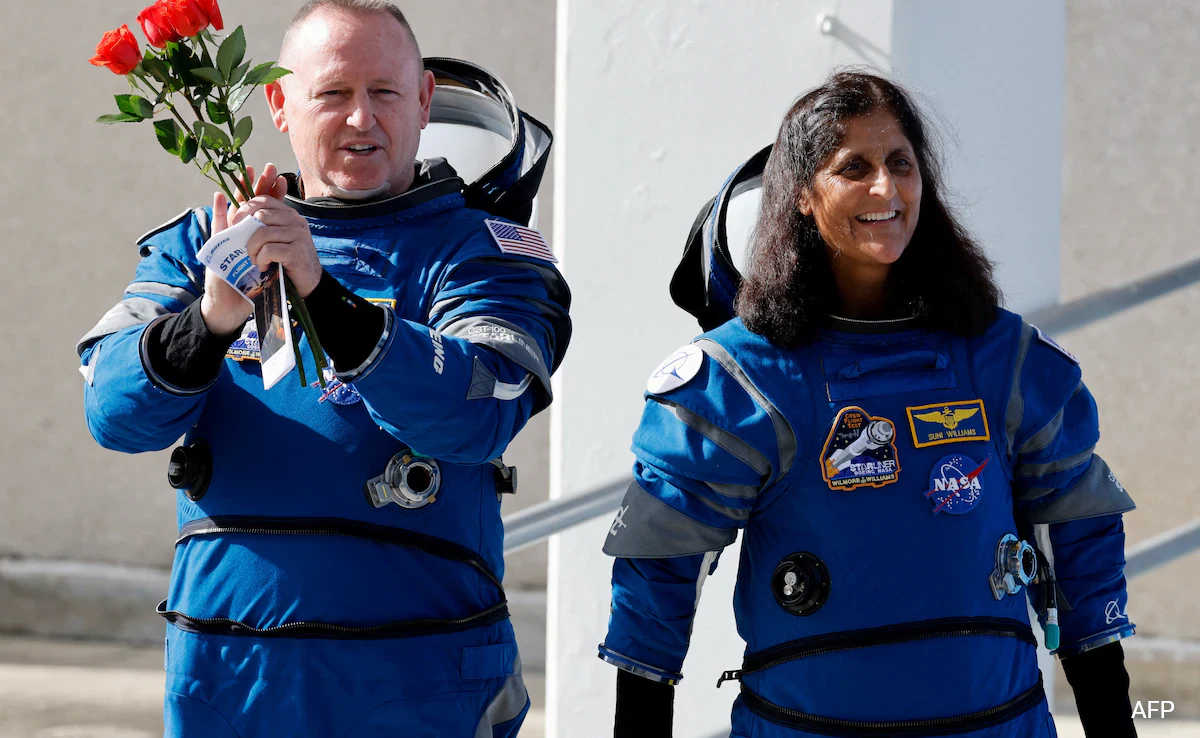Sunita Williams and her crew reached the ISS on board the new Boeing Starliner spacecraft on June 6
New Delhi: A significant challenge has emerged for NASA’s Indian-origin astronaut Sunita Williams and her fellow crew members on the International Space Station (ISS). The discovery of a multi-drug resistant bacterium, Enterobacter bugandensis, has raised serious concerns about health and safety aboard the station.
Scientists have identified this superbug, which has evolved in the unique, closed environment of the ISS. Unlike its Earth counterparts, the ISS-isolated strains have mutated under stress, becoming genetically and functionally distinct. This bacterium, notorious for its resistance to multiple drugs, primarily infects the respiratory system, posing a new risk to the astronauts.
Health Concerns Amid ISS Crew
Williams, along with astronaut Barry Eugene “Butch” Wilmore, arrived at the ISS on June 6, 2024, aboard the Boeing Starliner spacecraft. They are scheduled to spend over a week in the orbiting laboratory, testing the new spacecraft that Williams helped design. The seven other crew members have been on the ISS for a longer duration, and now face the additional challenge of this resilient bacterium.
Historically, the primary concerns for the ISS have been space debris and micrometeorites. However, the presence and evolution of these superbugs, carried inadvertently by humans over the past 24 years of continuous habitation, represent a significant new threat.
Evolving Microbial Landscape
NASA recently detailed the findings regarding E. bugandensis, revealing that 13 strains of this bacterium have been isolated from the ISS. These strains have adapted to the space environment, becoming more potent over time. The bacteria coexist with various other microorganisms, potentially aiding their survival in the harsh conditions of space.
Dr. Kasthuri Venkateswaran from NASA’s Jet Propulsion Laboratory in Pasadena, California, leads the research. Venkateswaran, who studied Marine Microbiology at Annamalai University in Chennai before joining NASA, has previously discovered another multi-drug resistant bacterium named Kalamiella piersonii, honoring his role model, former President Dr. APJ Abdul Kalam.
The collaborative research on E. bugandensis involved teams from JPL and the Indian Institute of Technology-Madras, Chennai. The findings, published in the scientific journal Microbiome, emphasize the unique challenges faced by astronauts operating with altered immune conditions and limited access to traditional medical facilities.
Implications for Astronaut Health
Dr. Venkateswaran highlights the broader implications of this research, stating, “Our research uncovers how certain benign microorganisms help to adapt and survive opportunistic human pathogen, E. bugandensis, in the unfavorable conditions of the International Space Station. The knowledge gained from this study sheds light on microbial behavior, adaptation, and evolution in extreme, isolated environments. This allows for designing novel countermeasure strategies to eradicate opportunistic pathogens, thus protecting the health of astronauts.”
NASA underscores the uniqueness of human-built environments like the ISS, which are subject to microgravity, radiation, and elevated carbon dioxide levels. Understanding microbial dynamics in these extreme environments is crucial for developing effective preventative measures for astronaut health.
Professor Karthik Raman from IIT-Madras remarks, “Microbes continue to puzzle us by growing in the most challenging conditions.” This sentiment reflects the ongoing need to study and manage the evolving microbial landscape aboard the ISS to ensure the safety and well-being of its inhabitants.
As the ISS crew continues their mission, the discovery of E. bugandensis serves as a stark reminder of the unforeseen challenges in space exploration. Ongoing research and innovative countermeasures will be essential in safeguarding the health of astronauts against these resilient superbugs.
#SpaceNews #SunitaWilliams #ISS #Superbug #NASA
